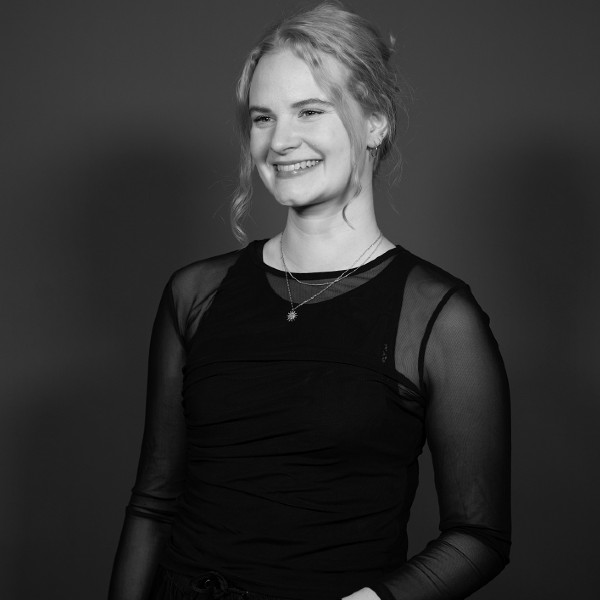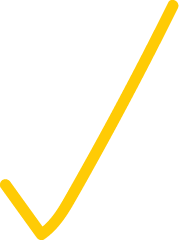Camilla Struck from NIFTY
May 2, 2022
BY Nina Lyhne

Meet Camilla:
-
Master’s degree student in Experience Economy at Aarhus University
-
Founder and CEO in NIFTY, a digital event platform that brings together creative events in the field of needlework and craftsmanship
-
Developed the idea for the company during an internship in her startup in the fall of 2021
How did the idea of becoming an entrepreneur arise?
The idea of becoming an entrepreneur has probably always lived inside me. In the last couple of years, I have had a note on my phone called ‘Ideas for companies’. Every time I have got an idea for a company or encountered a problem in my everyday life, I’ve written it down in this note. However, I have way too often seen newly launched companies and thought “Damn! This idea was written in my f****** note, but I didn’t do anything about it, so now I was outpaced by other talented entrepreneurs.” Therefore, the idea of becoming an entrepreneur has been there for many years, but to take the leap and act on these ideas – this is where I have just entered entrepreneurship.
How did you get started with your entrepreneurial journey?
Through my master’s degree program, I heard about the internship program at The Kitchen, where you could learn how to become an entrepreneur. And as a humanist, I really lacked some entrepreneurial skills – especially on how to go from thinking (aka the note on my phone) to action.
During the internship, I went through some structured phases that gave me tools and room to unfold my startup idea. After about two months of working on the idea, I concluded that NIFTY should be this event platform gathering creative events in the field of needlework and craftsmanship. Until then, I had thought it should be a creative workshop, a needlework café and everything in between those two ideas.
What has been the biggest challenge in the process?
If you ask my startup advisors from the internship program, they will definitely confirm that I have struggled the most with business models. It wasn’t because I didn’t understand how I made a business model. In fact, I had made more than 10 different business models. But I simply found it difficult to choose between the different ideas and business models – and to find a business model in which my startup idea had a healthy economy.
I think my challenges stem from my background in the humanities. As an experience economist, I focus on experiences potential to create value for human beings, and I had to merge this focus with the classic economic one. However, I would probably have created an economically imbalanced business if I had not taken up the challenge with the business model – and challenged my professional profile.
What does a typical workweek look like in relation to combining your startup with
your studies?
It is very important to me to have a healthy balance between 1) my studies and working life and 2) my private life. I like to take time off when I take time off – and work when I work. That is why I start every semester planning how much time my study requires per week on average, and then I calculate how much time I have left for my startup.
Right now, I spend three days a week writing my master’s thesis, one day working on NIFTY together with my partner, Maria Mi Nielsen, and one day working on NIFTY on my own. Which days I do what is not so important. What’s important is that I can focus on one thing per day. Otherwise, my experience is that it will quickly become a jumble of startup and study, where you lose sight of both.
I am not interested in working on my startup every evening and all weekends, because I don’t think that is sustainable in the long term. I consider myself the most important resource in my startup, so I’m careful about burning my candle at both ends, because then I will just end up unable to work on my startup.
How do you use your academic skills as an entrepreneur?
I have a BA in Media Studies and soon a master’s degree in Experience Economy, so my professional skills and competences from these studies are primarily strategic communication, media use and event planning. And since NIFTY offers marketing and exposure of creative event providers, I use a large proportion of both disciplines in the company. From experience economy, I have also learned entrepreneurship and project management methods, which I use a lot as CEO.
Where is your startup today, and what are your dreams for the future?
The status of NIFTY today is that we are in the process of completing our website (niftynordic.dk), and in the process of building creative communities on Instagram, Facebook and elsewhere. This summer, our website will be at a stage where we can start setting up event providers, which means that NIFTY has a well-functioning product, that I look forward to developing through close customer collaboration. Hopefully, I will be able to work full-time on NIFTY when I graduate in July.
My dreams for the future are that NIFTY becomes a big creative community and top-of-mind for creativity. Another dream is that NIFTY will continue to develop and shape the needs of our customers. It is also my vision that team NIFTY will continue to develop in line with the company, and that we as a team will remain being creative in the development and operation of NIFTY. I really hope our creative and different approach to entrepreneurship can inspire others who don’t match the stereotype or more profit-oriented way of doing things.
Your best advice for other students who are considering becoming entrepreneurs?
Becoming an entrepreneur is not about having the right competences to be one. Very few of us have that before we start. It’s about the will to create something. Your will and your drive for entrepreneurship are more important than your competences. You will get the skills along the way, but the drive is more difficult to find if you don’t already have it – and ultimately, it’s your drive and motivation for the startup that will keep you going. So, my best advice is definitely not to focus on how to become an entrepreneur, but why to become one. And hold on to your motivation and make sure to write it down or take a photo of it – or perhaps build it in cardboard. Whatever floats your boat!



